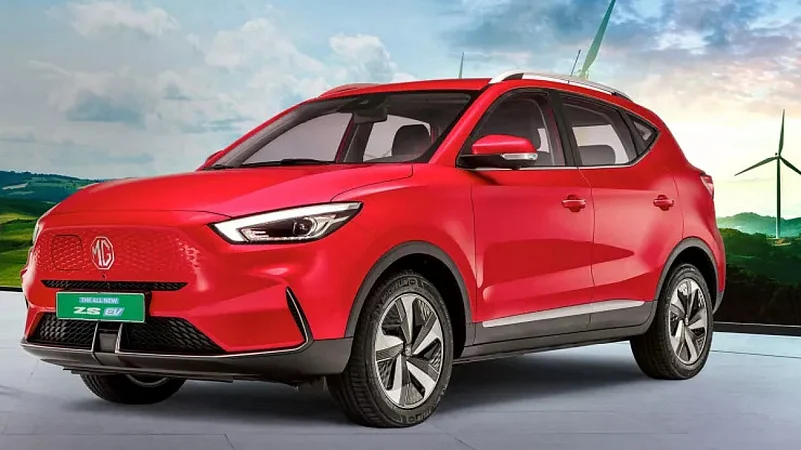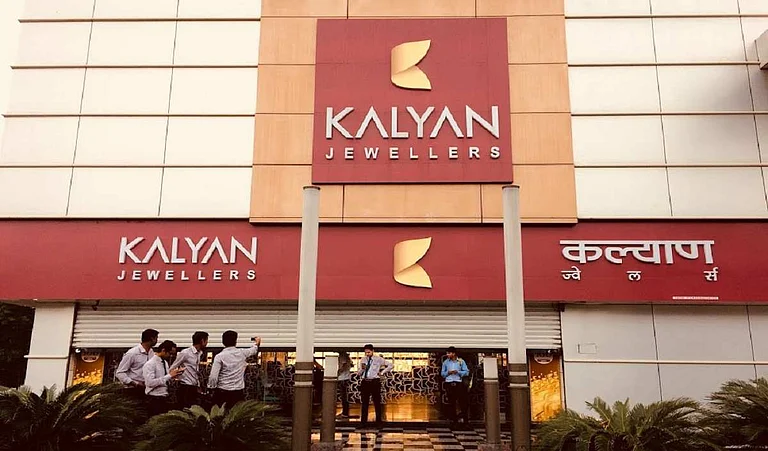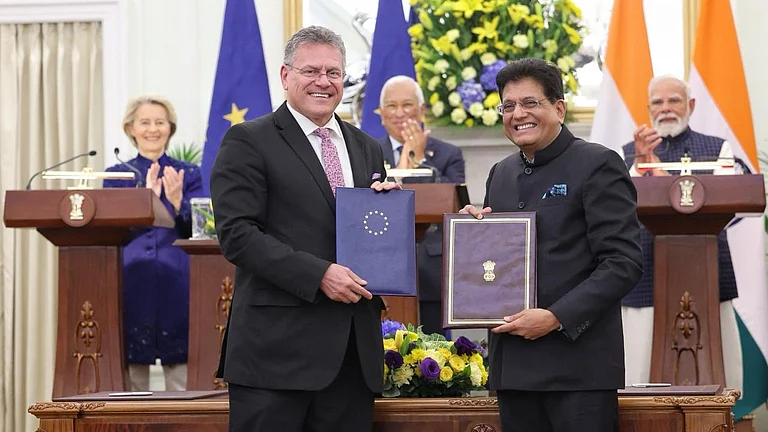Chinese electric vehicle maker BYD is not ready to apply for benefits in the short term under India's new EV policy announced earlier this year that seeks to attract global manufacturers to the country, a senior company official said on Tuesday.
The company, which launched its new all-electric multipurpose vehicle eMAX 7 priced between Rs 26.9 lakh and Rs 29.9 lakh, is looking at the homologation route in the short term to meet the demands of its high volume models in India, BYD India Head of Electric Passenger Vehicles Business Rajeev Chauhan told PTI here.
"Representatives of our company, who have a good idea about that policy went in, went through that. The final conclusion... is that we have decided that, no, we are not ready to implement this policy in the short term. So, we are not applying," he said when asked if BYD was looking to apply for benefits under the new EV policy in India.
Chauhan said having a manufacturing plant gives some advantages, but BYD India is not there yet.
"We are, I can confidently say that in the short term, we are not doing that," he said while declining to comment on the challenges due to geopolitics between India and China.
In March this year, the government announced the new electric vehicle policy to attract major global players like Tesla, allowing them to import a limited number of cars at lower customs/import duty of 15 per cent on vehicles costing USD 35,000 and above for a period of five years from the date of issuance of the approval letter by the government.
Under the policy, the approved applicants will have to set up manufacturing facilities in India with a minimum investment of Rs 4,150 crore (USD 500 million) for the manufacturing of e-4W (electric four-wheelers) and provide a bank guarantee.
The manufacturing facilities will have to be made operational within a period of 3 years from the date of the issuance of the approval letter by the Ministry of Heavy Industries and achieve a minimum DVA (domestic value addition) of 25 per cent within the same period, and increase it to 50 per cent in five years.
According to the policy, the companies will be allowed to import CBUs of e-4W manufactured by them at a reduced customs duty of 15 per cent, subject to the conditions. The maximum number of e-4W allowed to be imported at the reduced duty rate will be capped at 8,000 units per year. The carryover of unutilised annual import limits would be permitted.
Explaining the short term strategy for BYD India, he said, "We would really explore the market, for the gaps, for the opportunities, and wherever we feel that the opportunity is exceeding the quota, which is set by the government. We are taking the homologation (route) and we are applying for it." Homologation is the process of certifying vehicles for roadworthiness under rules specified by the government for all vehicles made or imported into the country through a certified agency.
BYD India is importing its new eMAX 7 and SEAL sedan under the Economic Commission for Europe (ECE) vehicle certification. It puts a cap on the total number of vehicles allowed to be imported to 2,500 units.
He further said, "So, the short term strategy would not call for a manufacturing investment, and for that, we have to wait." On the new eMAX 7, he said, "It is a testament to our unwavering commitment to innovation and sustainability... We will always be committed to bringing the latest global innovation to our discerning Indian consumers."
The new vehicle comes in two variants with six- and seven-seater options.































